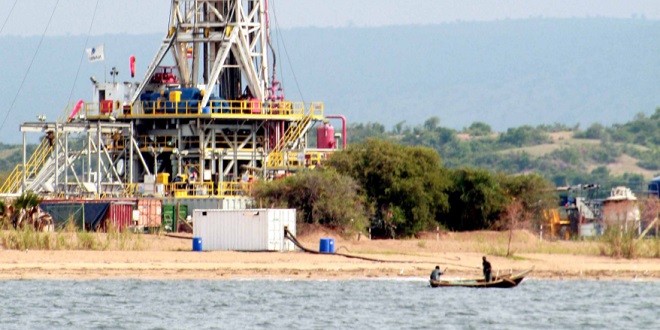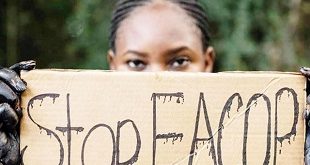
Kampala, Uganda | THE INDEPENDENT | The fear oil spill disasters is one of the risks of concern as the country prepares for commercial oil production.
It is feared by environment groups and scientists that the oil spill could wipe out tourism and fishing industries and wildlife habitats in the entire Albertine Graben if plans and response mechanism are not in place before production begins.
Oil Companies CNOOC Uganda Limited, Total E&P and Tullow are planning develop oil fields in the ecologically sensitive Albertine basin in Western and part of Northern Uganda.
The oil and gas resources estimated at 6.5 billion barrels of crude oil but the fear of potential disasters related to the industry remain high.
Such fears remerged at a recent Public Hearing on the Environment Social Impact Assessment (ESIA) report developed for CNOOC Uganda Limited for the King Fisher Project.
The hearing organized by Petroleum Authority in collaboration with National Environment Management Authority was among others attended by scientists, Politicians, members of the Civil Society and residents where the project is located.
The ESIA report highlighted oil spills as one of the potential impacts of the project during construction and normal operating conditions.
But several commentators expressed concern that CNOOC Uganda did not outline how it planned to avoid or mitigate the effects of the oil Spill on Lake Albert, its catchment areas and other ecosystems.
Apart from Lake Albert, some leaders from districts where the East African Crude Oil Pipeline is to be laid expressed fears that the leakages from the pipeline could affect water quality among others.
Retired Bishop of Bunyoro Kitara Diocese, Reverend Nathan Kyamanywa was one of those that thought that CNOOC Uganda Limited had not adequately addressed the oil spills concern.
“I expected risk management for unplanned events to be here because this concerns my life. He is telling us that they have it in mind but we want it here because we want to know” said Bishop Kyamanywa
Kyamanywa said his fears are based on what has happened in other countries like the BP oil spell in the Gulf of Mexico in 2010 killing and injuring a number of people.
Many have faulted NEMA and the Ministry of Water and Environment for slow action in putting in place the needed environment laws to address issues specific to the Oil and gas sector.
Some have suggested that Environment Social Impact Assessment project approvals processes should be halted until when the recently enacted Environment law is operational
NEMA Boss Speaks
National Environment Management Authority’s Deputy Executive Director, Christine Echookit Akello agreed that the Oil spill threats are real but she observed that they could be avoided with proper plans.
She said response to oil spills will be addressed under the national Oil Spills Contingency Plan which will identify the capacities of different institutions to respond in case of an oil spill.
The National Oil Spills Contingency Plan has been mooted since 2012 but it is yet to be finalized. NEMA expects that it will be finalized by end of this year. Akello says the oil spills under the proposed plan in arranged in three tiers according the magnitude of the problem.
The National Environment Act of 2019 requires institutions or individuals with the capacities to help in the event of a second tier oil spill.
A massive oil spill under the new law requires Office of the Prime Minister and other agencies like NEMA, and Petroleum Authority among others to marshal their competencies and resources in case of a massive spill on a water body like Lake Albert.
Fears Not Far Fetched
A recent Baseline Survey the East African Crude Oil Pipeline (EACOP) found that the project was likely to affect habitats of 13 animals of conservation importance which are nationally and or globally rare and threatened.
These include Bohor reedbuck, African golden cat, hippopotamus and spot-necked otter and the Chimpanzees of Wambabya and Bugoma Forest Reserves. Chimpanzees are classified as endangered nationally and by the International Union for Conservation of Nature (IUCN).
It outlined other potential risks to water bodies like Lake Albert, and Rivers like Wambabya, Semuliki and the Nile and the Nile delta also known as the Murchison delta at the estuary of River Nile as it enters Lake Albert.
Petroleum Authority Speaks
Andrew Senanbulya, a Senior Facilities Engineer at Petroleum Authority agreed that the pipeline could lead to an oil spill.
He however said the issue is being addressed right from the design stages of the pipeline. He said most parts of the pipeline will be buried as a means of reducing the effect of human activities that could jeopardize the integrity of the pipeline.
CNOOC Vice President, Cun Yuyun, who has been in Kikube and Hoima districts for the Public Hearing told URN that his organization will ensure that it maintains it environmental standards including avoiding oil spills while exploiting the oil resources.
*****
URN
 The Independent Uganda: You get the Truth we Pay the Price
The Independent Uganda: You get the Truth we Pay the Price



